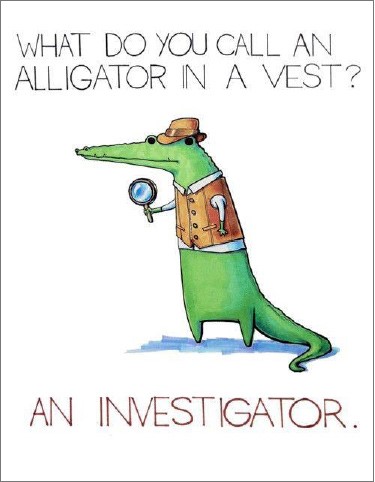|
Subject Complements: Usage and Examples
|
|
The word complement in English means "something that completes or makes perfect; either of two parts or things needed to complete the whole."
A subject complement in English describes or renames a sentence subject and completes the sense of the verb by means of an adjective, a noun, a pronoun, a possessive noun or pronoun, or an adverb of time or place. A subject complement can be a word or words, a phrase, or a clause.
Because they relate to the subject and not the object of a sentence, subject complements follow linking verbs, also known as intransitive verbs, which do not take a direct object. Some examples of linking verbs include:
| appear |
grow |
seem |
| be |
look |
smell |
| become |
remain |
stay |
| feel |
resemble |
taste |
Examples: Linking Verbs with Subject Complements
The carpet on sale is a bargain. (noun renaming carpet)
This coat feels warm. (adjective describing coat)
The harmonica you found is mine. (possessive pronoun renaming harmonica)
The day of the big race is today. (adverb of time describing the occurrence of day) |
As you may recognize, the basic structure of each sentence is subject > linking verb > subject complement.
If the sentences above included transitive verbs—those that take a direct object—they would not have subject complements but rather include object complements.
Sentence Examples: Transitive Verbs
We purchased the carpet [direct object] on sale.
I like this coat [direct object] that feels warm.
You found the harmonica [direct object] that is mine.
They scheduled the big race [direct object] to start today. |
Each underlined modifier relates to the object and not to the subject.
Depending on a writer's preference and style, the word order of constructions with subject complements can vary as well, including in interjections:
Today is the day of the big race.
How tall the corn stalk has grown!
What a bargain the carpet is! |
For good measure, let's review more examples of subject complements according to their parts of speech.
Subject Complement Examples: Adjectives
The horse is fast. (subject complement word describing horse)
The corn stalk grows tall. (subject complement word describing corn stalk)
Sarah looks ready for work. (subject complement phrase describing Sarah)
This burrito tastes as if it was made from a family recipe. (subject complement clause describing burrito)
Subject Complement Examples: Nouns and Pronouns
Over time a child becomes a grown-up. (subject complement noun renaming child)
His opinion stays the same. (subject complement pronoun renaming opinion)
The winner will be the person who receives the most votes. (subject complement noun phrase renaming winner)
The scent of that perfume is certainly hers. (subject complement possessive pronoun renaming scent)
Note that today's informal usage often allows for an expression such as "It is me" in place of "It is I," which would be more precise in daily formal writing. The informal use might also on occasion carry over to formal contexts. The writer's choice will depend on the communication's degree of formality and its familiarity with the audience.
Subject Complement Examples: Adverbs (Time and Place)
The time for the truth is now. (subject complement adverb describing time)
The best place to be on a winter morning is under my blanket. (subject complement adverbial prepositional phrase describing the best place)
The deadline for the rebate was last month. (subject complement adverbial phrase describing the deadline)
The mortgage closing will be wherever the loan agent schedules it. (subject complement adverbial clause describing the mortgage closing)
Careful writers will remain aware of when adverbs might slip incorrectly into the role of subject complement. This can often happen when an -ly adverb is used to complete a linking verb:
Wilhelm feels badly about dropping the glass.
The sandwich meat you used tastes poorly.
Rina's hair smells wonderfully when she uses that conditioner. |
In these examples, the underlined adverb is modifying the action as opposed to the subject as a complement. The context of each sentence with its linking verb calls for a subject complement adjective rather than an adverb:
Wilhelm feels bad about dropping the glass.
The sandwich meat you used tastes poor.
Rina's hair smells wonderful when she uses that conditioner. |
|
View and comment on this
article on our website.
|
|
|

|
Pop Quiz
Identify the subject complement in each sentence.
1. The remote control is over there.
2. This pizza tastes like cardboard.
3. The ghost always seems glad to be in the attic.
4. The final negotiated amount will be whatever she says it is.
5. The village's decades-old statute on littering remains relevant today.
|
 |
The Blue Book of Grammar and Punctuation
by Lester Kaufman and Jane Straus |
The Authority on English Grammar! Twelfth Edition Now Available
An indispensable tool for busy professionals, teachers, students, homeschool families, editors, writers, and proofreaders.
Available in print AND as an e-Book! Over 2,000 copies are purchased every month!
To order the book, simply click the link to order the book from the GrammarBook.com website.
|
Free BONUS Quiz for You!
[[firstname]], because you are a subscriber to the newsletter, you get access to one of the Subscribers-Only Quizzes. Click here to take a Pronouns Quiz and get your scores and explanations instantly!
We will be adding many more quizzes this year to our already substantial list of them. If you have suggestions for topics we have not yet covered, please send us a message at help@grammarbook.com.
|
Hundreds of Additional Quizzes
at Your Fingertips
Subscribe now to receive hundreds of additional English usage quizzes not found anywhere else!
Teachers and Employers
Save hours of valuable time! You may assign quizzes to your students and employees and have their scores tallied, organized, and reported to you! Let GrammarBook.com take the hassle out of teaching English!
"Fun to test my skills."
"The explanations really help ... thanks!"
"I can select the quizzes to assign to my students, and then the results are reported to me automatically!"
If you think you have found an error in a quiz, please email us at help@grammarbook.com
|
Wordplay

Pop Quiz Answers
1. The remote control is over there.
2. This pizza tastes like cardboard.
3. The ghost always seems glad to be in the attic.
4. The final negotiated amount will be whatever she says it is.
5. The village's decades-old statute on littering remains relevant today.
|
 |
English In A Snap:
68 One-Minute English Usage Videos FREE |
Learn all about who and whom, affect and effect, subjects and verbs, adjectives and adverbs, commas, semicolons, quotation marks, and much more by just sitting back and enjoying these easy-to-follow lessons. Share them with your colleagues (and boss), children, teachers, and friends as well! Click here to watch.
|
|





